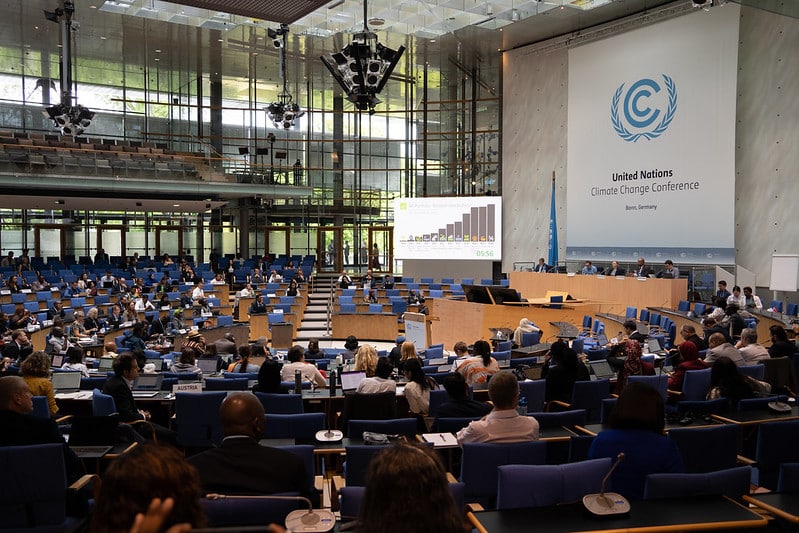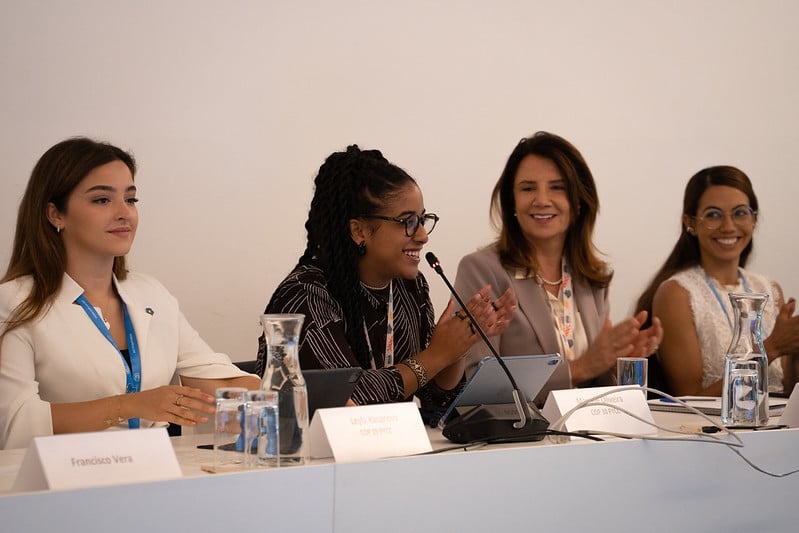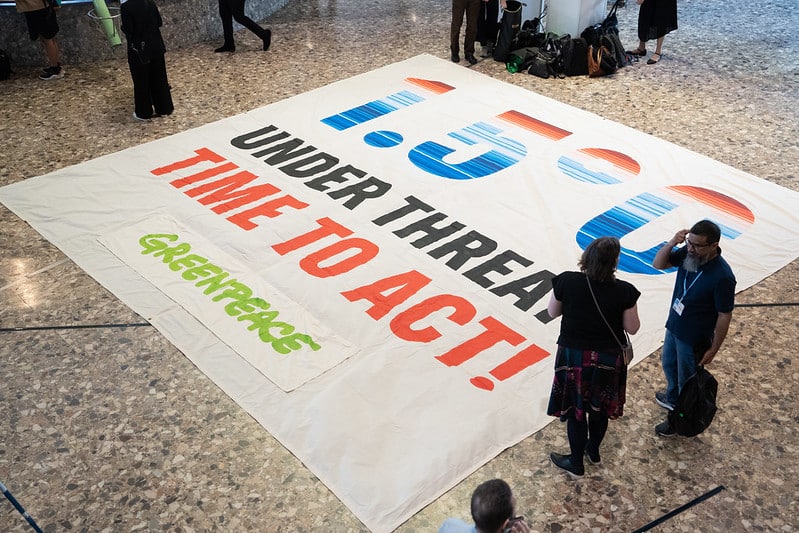COP30 in Brazil: A people-powered climate ambition

Climate KIC attended SB62 last week, and if you aren’t familiar with the climate negotiations space, here’s something you should understand: any headlines we see in November during COP30 in Brazil will be based on decisions made here at SB62.
Subscribe to our COP30 mailing list if you want to keep up to date with Climate KIC’s COP30 programme and events.
So here we are, in Bonn, for the sixty-second sessions of the Subsidiary Body for Scientific and Technological Advice and the Subsidiary Body for Implementation of the United Nations Framework Convention on Climate Change (UNFCCC). The SB sessions lay the technical groundwork for the Conference of the Parties (COP). These meetings have profound implications for millions of lives.
This year, countries are grappling with critical issues: strengthening national climate plans (NDCs), scaling up finance for vulnerable nations, measuring what matters for at-risk communities, and shifting to green economies without leaving anyone behind.
Brazil’s contradictions
Brazil is hosting this year’s COP30, and as its team was trying to get things moving in the right direction, here in Bonn, the Brazilian government auctioned off – live on TV – the rights to extract oil and gas in 172 parts of the country and its waters (47 of them offshore near the mouth of the Amazon River).
When burned, the oil and gas extracted here would release 11 billion tonnes of carbon dioxide. The Amazon region, which will host the COP30, now holds nearly one-fifth of the world’s recently discovered oil and natural gas reserves, establishing itself as a new global frontier for the fossil fuel industry.
A crisis of trust and relevance in the COP process
The Brazilian oil auction controversy is hardly an isolated incident. The last three COPs have each been marked by scandals that expose the fundamental contradictions within these climate negotiations.
The COP27 in Egypt in 2022 was overshadowed by the hunger strike of imprisoned British Egyptian activist Alaa Abd El-Fattah, highlighting Egypt’s authoritarian crackdown on anyone criticising the regime. In 2023, COP28 in Dubai was presided over by Sultan al-Jaber, the CEO of Abu Dhabi National Oil Company, who discussed fossil fuel deals with 15 countries during climate meetings. Last year, COP29 was hosted by Azerbaijan, another major fossil fuel producer, whose president opened the COP with a speech celebrating fossil fuels as a “gift of god”.
Over the years, faith in the UN’s climate negotiations has been fading and more and more voices are asking whether this process can regain relevance for the billions of people who are at the forefront of the climate crisis.
A call for systemic reform ahead of COP30 in Brazil
Climate KIC joined a growing chorus of organisations calling for fundamental change, arguing that the current structure of global climate negotiations is no longer delivering the outcomes we urgently need.
The demand is clear: global climate governance demands systemic transformation and it must be redesigned to center justice. While the UNFCCC remains a foundational multilateral platform, it must evolve to become more transparent, equitable, and responsive to those most affected by the climate crisis—particularly frontline communities, Indigenous Peoples, and climate-vulnerable nations.
This transformation requires real reform. Power must be rebalanced away from blocking mechanisms and toward majority-based decisions that uplift climate-vulnerable voices. Corporate capture must be eliminated through robust conflict-of-interest policies that remove major polluters from official COP spaces. Transparency should be ensured through open negotiations and strengthened compliance mechanisms. Human rights must be protected by guaranteeing freedom of speech and meaningful participation.
Brazil wants to bring communities and negotiations together at COP30
The COP30 Presidency have repeated it over the past few days here in Bonn: this will be “the COP of people,” “of local action,” “of implementation,” “of action,” “of solutions.” They are trying to rebuild trust in the process by introducing Mutirão, a concept of community effort.
To support this, they are backing the Global Citizen Assembly, a long-term project that aims to aggregate local citizen assemblies from around the world to bridge the gap between the negotiations and on-the-ground reality in communities.
“This represents a new form of political innovation for system change,” says Rich Wilson of the Iswe Foundation, which is convening the Global Assembly. It is designed to carry messages from communities directly into negotiations. The underlying premise is that national policies need to become political mandates driven by people.
Building on this community-focused approach, COP30 President André Aranha Corrêa do Lago released his Fourth Letter to COP30 delegates, outlining the Action Agenda for COP30 in Brazil. Rather than launching new mechanisms and making new promises, the presidency wants to focus on implementing the 400 or so climate pledges that have been made in recent COPs, together with non-state actors including businesses, civil society, national and local governments, and Indigenous peoples.
They identified six key axes: transitioning energy and transport, protecting biodiversity, transforming food systems, building urban resilience, advancing human development, and mobilising finance and technology. With less than six months to go before COP30 opens in Brazil, they set themselves the objectives to map those pledges, track progress, and analyse the bottlenecks preventing their implementation.
A new narrative for the 1.5 target overshoot
While implementation needs to be accelerated, we cannot hide from the science. A new report shows we will overshoot the Paris Agreement’s 1.5°C target. But scientists in Bonn insist on keeping the 1.5 narrative alive. Though “we are likely heading toward 1.7–1.8°C of warming and scenarios that keep us within 1.5°C are now nearly out of reach, every fraction of a degree matters.”
The difference between 1.5°C and 1.8°C means millions more lives affected by extreme weather, displacement, and economic disruption. And the 1.5°C target still represents “a legally binding commitment and a moral and political obligation.”
The conversation around 1.5°C must evolve “beyond a binary success-or-failure” framing, experts said. We need to communicate not just goals, but “the need to increase the highest possible near-term ambition” and to “develop overshoot strategies.” This narrative shift requires discussing historical responsibility and accountability for overshoot.
The path forward
During our time in Bonn, we spoke with negotiators, scientists, and representatives from civil society to gain a deeper understanding of the various perspectives influencing these critical discussions. Their insights will be featured in upcoming podcast episodes that will reveal the nuances of climate diplomacy and showcase voices driving change from within and outside the negotiation rooms. Follow us on Spotify and Apple Podcast to stay up-to-date on those conversations.
If you’re working on climate solutions, policy innovation, or community-driven action and want to explore how we might work together at COP30, we’d love to hear from you. Subscribe to our COP30 mailing list if you want to keep up to date with Climate KIC’s COP30 programme and events.
All Photos by UN Climate Change – Lara Murillo



